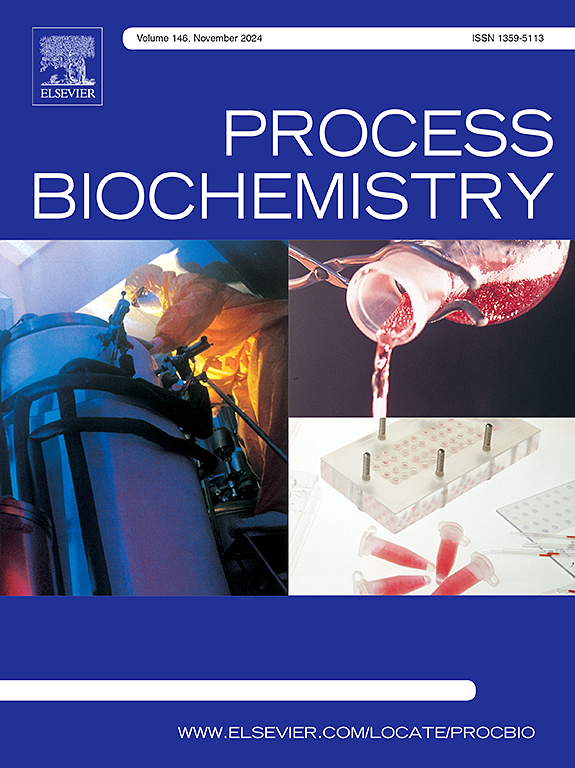Temperature fluctuations drove the interactions dynamic of keystone microbes for Chinese baijiu fermentation
IF 4
3区 生物学
Q2 BIOCHEMISTRY & MOLECULAR BIOLOGY
引用次数: 0
Abstract
Temperature is an important abiotic factor to drive the spontaneous food fermentations, however, the effects of temperature on these processes still remain unclear. In this study, we revealed the dynamics of temperature, microbiota and metabolites in the typical Chinese baijiu fermentation. Moreover, we established a specific data-driven correlation analysis model based on machine learning. We revealed 13 high-abundance and 6 low-abundance species as the keystone microbes in this fermentation, by overall considering abundance, function and frequency of fermented microorganisms. In addition, the increasing of heating rate (from 2 to 5 ℃/day) strengthened the bacterial-bacterial interactions and weakened the bacterial-fungal interactions among these keystone microbes, subsequently affecting the metabolite shifts in baijiu fermentation. Therefore, we proposed a data-driven keystone microbe’s identification framework, and revealed the effects of temperature fluctuation on the interaction and metabolism of keystone microbes. Moreover, this study would pave the way for the identification of keystone microbes within complex microbial communities, and guide the optimization of fermentation processes for improving the quality of fermented products.
温度波动驱动白酒发酵关键微生物相互作用动态
温度是驱动食物自发发酵的重要非生物因素,但温度对这些过程的影响尚不清楚。本研究揭示了典型白酒发酵过程中温度、微生物群和代谢物的动态变化。此外,我们还建立了一个具体的基于机器学习的数据驱动相关性分析模型。综合考虑发酵微生物的丰度、功能和频率,我们发现了13种高丰度和6种低丰度的关键微生物。此外,升温速率的增加(从2℃/d增加到5℃/d)增强了关键微生物之间的细菌-细菌相互作用,减弱了关键微生物之间的细菌-真菌相互作用,从而影响了白酒发酵过程中代谢产物的变化。因此,我们提出了一个数据驱动的关键微生物鉴定框架,并揭示了温度波动对关键微生物相互作用和代谢的影响。此外,该研究将为复杂微生物群落中关键微生物的鉴定铺平道路,并指导发酵工艺的优化,以提高发酵产品的质量。
本文章由计算机程序翻译,如有差异,请以英文原文为准。
求助全文
约1分钟内获得全文
求助全文
来源期刊

Process Biochemistry
生物-工程:化工
CiteScore
8.30
自引率
4.50%
发文量
374
审稿时长
53 days
期刊介绍:
Process Biochemistry is an application-orientated research journal devoted to reporting advances with originality and novelty, in the science and technology of the processes involving bioactive molecules and living organisms. These processes concern the production of useful metabolites or materials, or the removal of toxic compounds using tools and methods of current biology and engineering. Its main areas of interest include novel bioprocesses and enabling technologies (such as nanobiotechnology, tissue engineering, directed evolution, metabolic engineering, systems biology, and synthetic biology) applicable in food (nutraceutical), healthcare (medical, pharmaceutical, cosmetic), energy (biofuels), environmental, and biorefinery industries and their underlying biological and engineering principles.
 求助内容:
求助内容: 应助结果提醒方式:
应助结果提醒方式:


